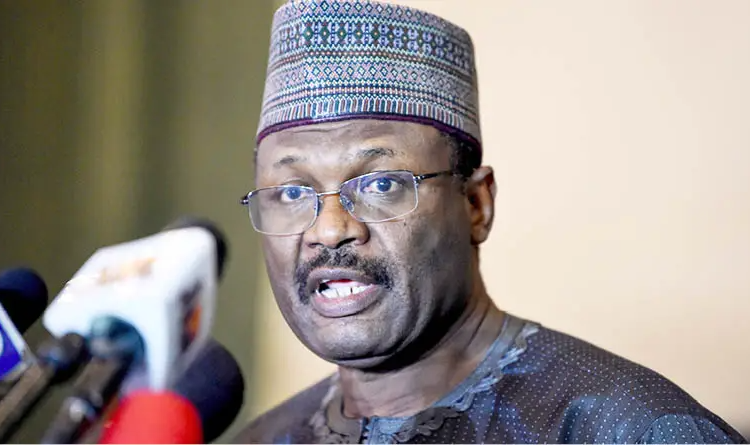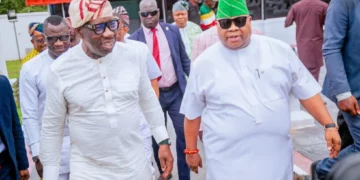The Independent National Electoral Commission (INEC) has voiced its concern about the consistently litigious nature of elections held in Nigeria since the advent of the present democratic era in 1999.
INEC also said incessant conflicting judgments by the Courts, which have become a re-current decimal in the jurisprudence of election in Nigeria, was inimical to the electoral process.
The development was attributed to the prevailing political culture in the nation.
Speaking during a two-day workshop for members of the INEC Press Corps in Akwanga, Nasarawa State, the Director of Legal Drafting and Contacts, Barr. (Mrs) Toyin Babalola, stressed the need for political parties to uphold the principles of internal democracy by ensuring that the selection of candidates accurately represents the will of their party members during primary elections.
Babalola argued that by adhering strictly to the principles of internal democracy and ensuring candidate nominations align with their members’ preferences, political parties could contribute significantly to reducing the frequency of pre-election disputes and their adverse impact on the electoral process.
According to her, “Elections conducted since the inception of democracy have been litigious, owing to our political culture.
“It is important that political parties strictly preserve the tenets of internal democracy by ensuring that nomination of candidates reflects the will of their members at party primaries, to reduce the spate of pre-election matters and its impact on preparation for elections,” she said.
The INEC director stated that it was pertinent to note that election challenges are a crucial part of the electoral processes of constitutional democracies the world over.
She said, “In Nigeria, like other representative democracies, the electoral laws provide for resolution of electoral disputes through the mechanism of legal proceedings referred to as pre–election and post-election (Election Petitions) cases.
“The challenges associated with litigation, are not limited to pre-election cases.
“The following challenges have been identified as relating to pre-election matters: Lack of internal party democracy: This is one of the major basis for pre-election matters.
“Non-adherence to party Constitution and Guidelines, arbitral replacement of candidates from persons that emerged from validly conducted primaries, nomination of placeholders, etc are factors that impact on preparations for elections.
“Conflicting judgments by the Courts which have become a re-current decimal in the jurisprudence of election in Nigeria and is inimical to the electoral process.”
She said the concerns of the Commission were in respect of the trend, which has portrayed partial departure from the time honoured doctrine of stare decisis resulting in conflicting decisions on same set of facts and subject matter.
She said, “This has resulted to uncertainty, loss of confidence in the system with the attendant negative consequences on the electoral process.
“The conflicting judgments on elections and political matters can be categorized into the following: circumstances where the courts failed to be bound by decisions of superior courts or their own decisions on similar facts; and circumstances where courts of co-ordinate jurisdiction give conflicting decisions/orders on similar set of facts.
“Either of these poses significant problems to the electoral process. Where the courts depart from precedents, it creates uncertainty as to the state of the law and consequence of particular conduct and makes it difficult for the Commission to carry out its constitutional mandate.”
She averred that when courts of coordinate jurisdiction give conflicting judgments, it can lead to disobedience of court orders, and confusion in the polity and to the election management body.





